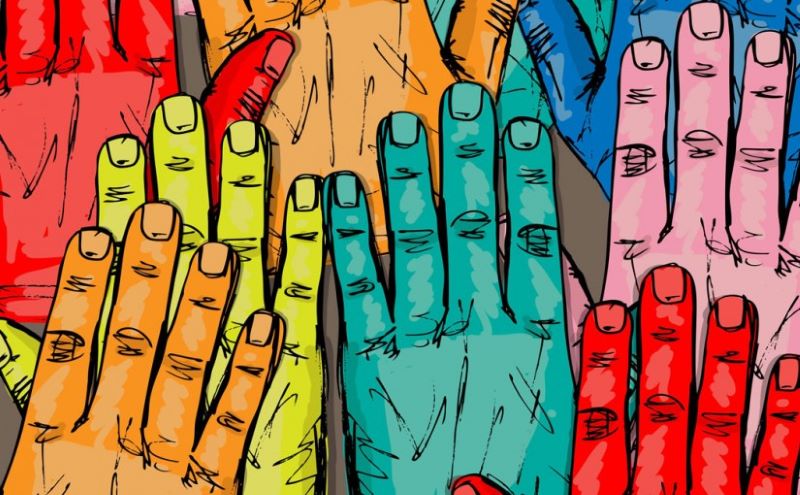For Whom the Bell Tolls
By Park Nahm-Sheik
This is the title of one of Hemingway’s major works of fiction. It tells the story of Robert Jordan, a young American volunteer attached to a Republican guerilla unit during the Spanish Civil War. Jordan apparently is Hemingway’s alter ego and reflects his humanitarian activism for freedom and justice everywhere. On everyone’s lips, the title of this celebrated novel is attributed to John Donne, an Anglican clergyman and the father of metaphysical poets. To quote Donne from one of his better-known sermons:
No man is an island, entire of itself.
Every man is a piece of the continent, a part of the main.
If a clod be washed away by the sea, Europe is the less,
As well as if a promontory were,
As well as if a manor of thy friends or of thine own were.
Any man’s death diminishes me, because I am involved in mankind,
And therefore never send to know for whom the bell tolls,
Because it tolls for thee.
Farewell to Arms is another one of Hemingway’s masterpieces of fiction. The protagonist is Frederic Henry, a young American volunteer serving in the Ambulance Corps of the Italian Army during World War I. His story is also about humanitarian volunteerism without borders. For him, injustice anywhere is injustice everywhere.
In light of the unmistakable Hemingwayesque streak of humanitarianism, For Whom the Bell Tolls is more than aptly titled. And I have chosen the selfsame title for my contribution to the June 2023 issue of the Gwangju News for a reason. I wanted to highlight the GIC’s dedication to the same humanitarian activism in the cause of global justice. The Center is always prepared to lend a helping hand every time people somewhere are in dire straits. It believes in caring for those most in need of help, be they on shore or off.
Speaking of the global community at large, two countries in particular are in desperate need of outside assistance. They are Ukraine and Myanmar. Our hearts go out to the residents of these two countries. We pray for a quick end to the hostilities raging in these faraway lands.
As for the war in Ukraine, Russians have been committing countless war crimes. They are so inhumane as to be way beyond description. Tens of thousands of civilians have been killed or maimed. It is heartbreaking that among the victims are quite a few children, including mere toddlers. This is in addition to millions of Ukrainians seeking refuge in neighboring countries. One big irony here is that Russians themselves have suffered just as much as or even more than Ukrainians have. Russian casualties are already in six digits, hovering around 200,000. Thousands of Russian tanks, APCs, artillery pieces, aircraft, and naval vessels have been knocked out of action.
Myanmar is bogged down in a civil war between a military junta and a multi-ethnic popular liberation front. Sadly, no end appears in sight for this bloody internecine war. Armed with slingshots, Molotov cocktails, and a few hunting rifles, anti-junta fighters take to the streets in the cities and to the hillsides in the countryside. Pitted against the junta forces armed to the teeth with modern tools of warfare, they evidently are outmatched almost beyond hope. They are determined, however, to fight it out until they get to drive the junta out.
Warfare is not the only thing of grave global concern today. Pockets of poverty, hunger, and disease present us with equally fraught situations. In countries like Bangladesh, abject poverty forces many children out of home and school while they are in their early teens. The boys are often dragooned into the dog-eat-dog labor market and the girls into inhuman early marriages to much older partners, not infrequently double or triple their age.
To make matters worse, poverty-stricken areas are typically vulnerable to disease, epidemic, endemic, or otherwise, which ironically presents a fertile ground for humanitarian volunteers to come in and work their magic. Entering this vibrant month of June face to face with a difficult situation, we may as well take this occasion to renew our resolution to come to the rescue of everyone in need wherever they may be. No man is an island, remember? We are all fellow travelers bound to one and the same “spaceship” earth, are we not?
Long live ubuntu!
The Author
Park Nahm-sheik has a BA in English from Chonnam National University, an MA in linguistics from the University of Hawaii at Manoa, U.S.A., and a PhD in applied linguistics from Georgetown University. He is now a professor emeritus after a long and illustrious career at Seoul National University as well as president emeritus of the International Graduate School of English.




